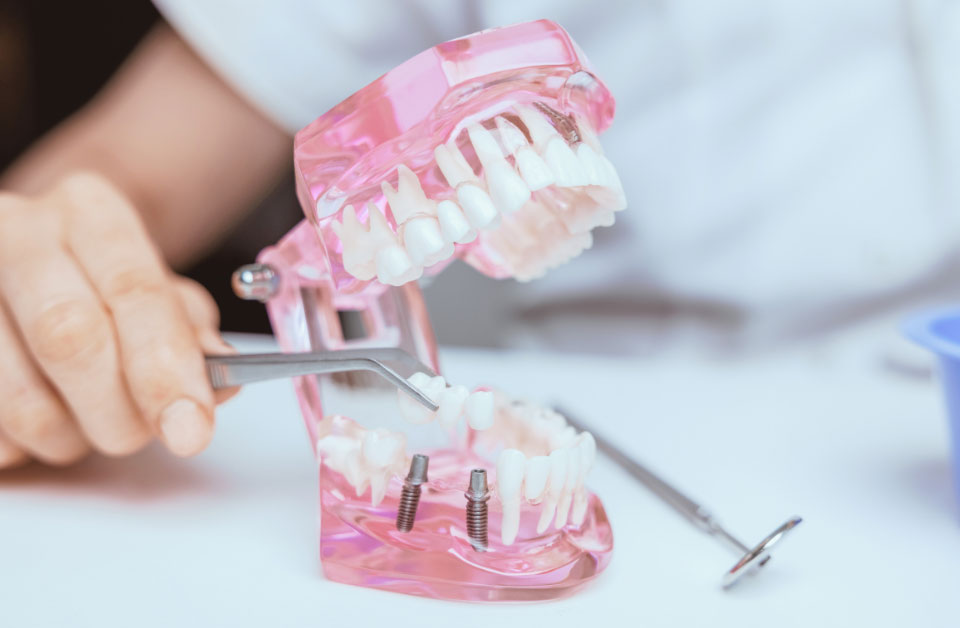 Welcome to the world of oral surgery. As an implant nurse, you will assist with various procedures, from bone grafts and sinus lifts to the placement of dental implants. Implants are becoming an increasingly popular treatment in dental practices. In the past, patients who required dental implants were often referred to an implantologist at another practice. More recently, implant treatments are being carried out in-house, making it crucial to have experienced nurses trained in implant procedures.
Welcome to the world of oral surgery. As an implant nurse, you will assist with various procedures, from bone grafts and sinus lifts to the placement of dental implants. Implants are becoming an increasingly popular treatment in dental practices. In the past, patients who required dental implants were often referred to an implantologist at another practice. More recently, implant treatments are being carried out in-house, making it crucial to have experienced nurses trained in implant procedures.
At first glance, implant procedures may remind you of a hospital environment. The team is dressed in gowns, and drapes are laid out across the worktops, with an array of surgical instruments ready for the surgery.
But what does it take to be an implant nurse?
The Role of an Implant Nurse
As dental nurses, many of us have enjoyed assisting with surgical extractions. Implant dental nursing is quite similar. The implant nurse plays a critical role from start to finish — from the very first consultation to post-operative care of the restoration.
Consultation and Patient Care
Every patient considering implant treatment will begin with a consultation. During this time, all necessary information is gathered, and any questions or concerns are addressed. The implant nurse is responsible for taking an extensive medical history to highlight any contraindications that could prevent the patient from continuing with the treatment. Additionally, the nurse will chart which teeth require implants, discuss costs, and ensure consent and treatment plans are signed.
The implant nurse's role also involves reiterating what the dentist has explained, breaking it down into simpler terms to ensure the patient fully understands the procedure. The nurse must be prepared to answer any questions and manage patient expectations, explaining the multiple stages involved in implant treatment. During this stage, the nurse will also arrange for scans or radiographs to be taken, which will determine if a bone graft or sinus lift is required.
Asepsis and Cross-Infection Control
Asepsis is a key component of the implant placement process. A thorough understanding of cross-infection control is essential to prevent infection and ensure the surgery’s success. The implant nurse assists in the surgical hand scrub and gowns up alongside the dentist.
This nurse, known as the ‘sterile nurse’, is responsible for draping the surgery and preparing sterile surgical instruments with the assistance of the ‘non-sterile nurse’. The non-sterile nurse opens sterilised pouches, records drill usage, and logs any implant labels used. Meanwhile, the sterile nurse assists the implantologist by retracting and aspirating to maintain a clear field of vision, all while reassuring the patient throughout the procedure.
Key Skills and Knowledge
An implant nurse should be knowledgeable in all aspects of implant treatment. This expertise provides crucial support to both the implantologist and the patient throughout the process. Implant nursing can be complex, involving the learning of aseptic techniques, contraindications, medico-legal aspects, and the names of various components and materials.
While obtaining a qualification in implant nursing is not essential, it would certainly be advisable to deepen your understanding. In addition to technical skills, an implant nurse must be highly organised and able to communicate effectively within the team to ensure a smooth patient journey.
The Rewards of Implant Nursing
Implant treatment can be life-changing for patients, and the implant nurse plays a significant role in that experience. Being part of this transformative process is highly rewarding.


